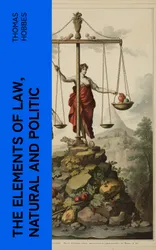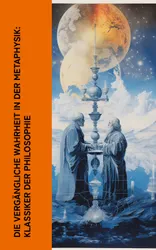Thomas Hobbes's seminal work, *Leviathan*, published in 1651, is a cornerstone of political philosophy that explores the foundations of civilization and the structure of society. Written during the tumultuous period of the English Civil War, Hobbes employs a distinctively clear and methodical literary style, combining rigorous logical argumentation with vivid metaphor. The titular Leviathan emerges as a powerful symbol of the state, representing the necessity of a strong, centralized authority to prevent the chaos of humanity's natural state, characterized by 'war of all against all.' This text offers profound insights into human nature, governance, and social contracts, setting the stage for modern political thought. Thomas Hobbes, a philosopher, and mathematician, was deeply influenced by his experiences in a politically unstable England. His prior studies of science, particularly geometry and optics, inform his analytical approach to human behavior and political structures. These influences culminated in his desire to find a stable framework for societal order, prompting the creation of *Leviathan*, which challenges readers to grapple with the implications of political authority and individual freedom. *Leviathan* is essential reading for anyone interested in the origins of political theory, ethics, or modern governance. Hobbes's arguments are not only historically significant but also resonate with contemporary debates on authority and individual rights. This thought-provoking work invites readers to reflect on the delicate balance between security and freedom, urging them to consider the implications of political power in their own lives.

Leviathan
Thomas Hobbes
audiobookbook
The Elements of Law, Natural and Politic
Thomas Hobbes
book
De la nature humaine
Thomas Hobbes
book
Leviathan
Thomas Hobbes
audiobookbook
Leviathan : Band 1-4: Politische Philosophie über Staat und Macht (Ausgabe in neuer Übersetzung und Rechtschreibung)
Thomas Hobbes
book
Leviathan : (The Matter Forme Power of a Common-Wealth Ecclesiastical And Civill)
Thomas Hobbes
book
Philosophie der Aufklärung : Die wichtigsten Werke von Immanuel Kant, John Locke, Rousseau, Voltaire, Denis Diderot, David Hume, Leibniz, Johann Gottfried Herder
Johann Gottfried Herder, Montesquieu, David Hume, Denis Diderot, Jean-Jacques Rousseau, John Locke, Thomas Hobbes, Benjamin Franklin, Francis Bacon, Immanuel Kant, Baruch Spinoza, Isaac Newton, Freiherr Gottfried Wilhelm von Leibniz, Voltaire, René Descartes
book
Die größten Philosophen der Aufklärung : Neues Organon, Kritik der reinen Vernunft, Der Gesellschaftsvertrag, Candide, Monadologie, Mathematische Principien der Naturlehre
Jean-Jacques Rousseau, Voltaire, Denis Diderot, David Hume, Johann Gottfried Herder, John Locke, Thomas Hobbes, Benjamin Franklin, Francis Bacon, Immanuel Kant, Montesquieu, Baruch Spinoza, Isaac Newton, Freiherr Gottfried Wilhelm von Leibniz, René Descartes
book
The Political Works of Thomas Hobbes (4 Books in One Edition) : Leviathan, On the Citizen, The Elements of Law & Behemoth: The Long Parliament
Thomas Hobbes
book
Grundzüge der Philosophie : Die unveränderliche menschliche Natur und die Notwendigkeit absoluter Autorität
Thomas Hobbes
book
Die vergängliche Wahrheit in der Metaphysik: Klassiker der Philosophie : Metaphysische Anfangsgründe der Naturwissenschaft, Träume eines Geistersehers, Grundzüge der Philosophie, Götzen-Dämmerung
Platon, Aristoteles, Plotin, Thomas von Aquin, René Descartes, Baruch Spinoza, Thomas Hobbes, Immanuel Kant, Gottfried Wilhelm Leibniz, Friedrich Wilhelm Joseph Schelling, Georg Wilhelm Friedrich Hegel, Arthur Schopenhauer, Moses Mendelssohn, Friedrich Nietzsche, Rudolf Steiner
book
Metaphysik: Zwischen flüchtiger Wahrheit und ewiger Suche : Meisterwerke der Philosophie: Metaphysische Anfangsgründe der Naturwissenschaft, Träume eines Geistersehers, Grundzüge der Philosophie, Götzen-Dämmerung
Platon, Aristoteles, Plotin, Thomas von Aquin, René Descartes, Baruch Spinoza, Thomas Hobbes, Immanuel Kant, Gottfried Wilhelm Leibniz, Friedrich Wilhelm Joseph Schelling, Georg Wilhelm Friedrich Hegel, Arthur Schopenhauer, Moses Mendelssohn, Friedrich Nietzsche, Rudolf Steiner
book
